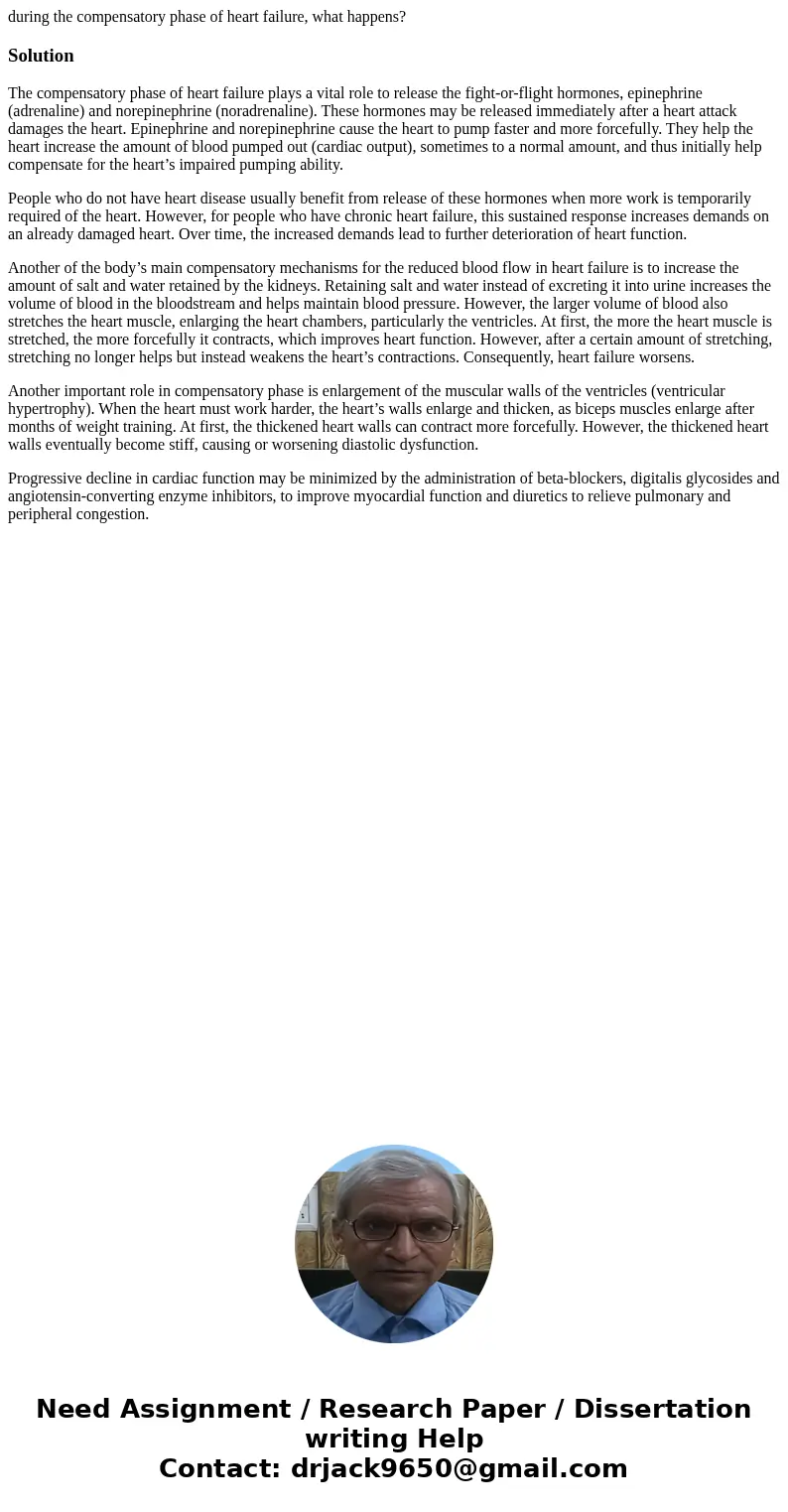during the compensatory phase of heart failure what happensS
during the compensatory phase of heart failure, what happens?
Solution
The compensatory phase of heart failure plays a vital role to release the fight-or-flight hormones, epinephrine (adrenaline) and norepinephrine (noradrenaline). These hormones may be released immediately after a heart attack damages the heart. Epinephrine and norepinephrine cause the heart to pump faster and more forcefully. They help the heart increase the amount of blood pumped out (cardiac output), sometimes to a normal amount, and thus initially help compensate for the heart’s impaired pumping ability.
People who do not have heart disease usually benefit from release of these hormones when more work is temporarily required of the heart. However, for people who have chronic heart failure, this sustained response increases demands on an already damaged heart. Over time, the increased demands lead to further deterioration of heart function.
Another of the body’s main compensatory mechanisms for the reduced blood flow in heart failure is to increase the amount of salt and water retained by the kidneys. Retaining salt and water instead of excreting it into urine increases the volume of blood in the bloodstream and helps maintain blood pressure. However, the larger volume of blood also stretches the heart muscle, enlarging the heart chambers, particularly the ventricles. At first, the more the heart muscle is stretched, the more forcefully it contracts, which improves heart function. However, after a certain amount of stretching, stretching no longer helps but instead weakens the heart’s contractions. Consequently, heart failure worsens.
Another important role in compensatory phase is enlargement of the muscular walls of the ventricles (ventricular hypertrophy). When the heart must work harder, the heart’s walls enlarge and thicken, as biceps muscles enlarge after months of weight training. At first, the thickened heart walls can contract more forcefully. However, the thickened heart walls eventually become stiff, causing or worsening diastolic dysfunction.
Progressive decline in cardiac function may be minimized by the administration of beta-blockers, digitalis glycosides and angiotensin-converting enzyme inhibitors, to improve myocardial function and diuretics to relieve pulmonary and peripheral congestion.

 Homework Sourse
Homework Sourse